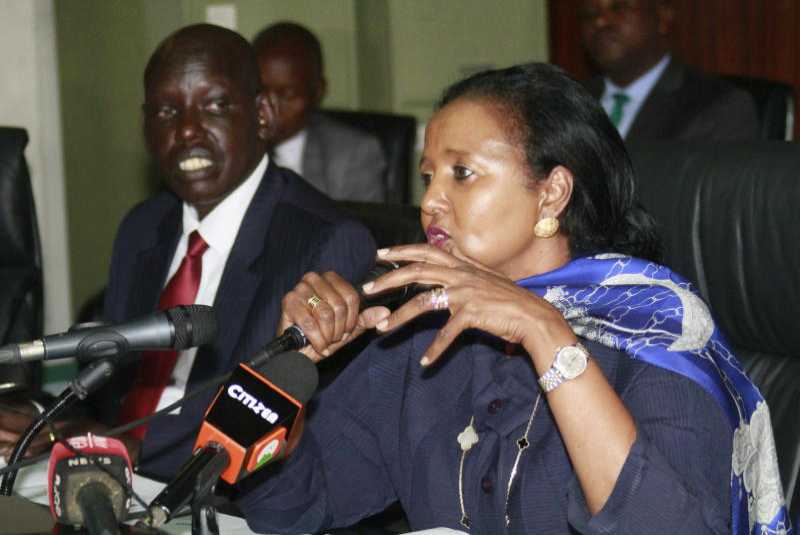
Education CS Amina Mohamed(R) with her PS Bellio Kipsang when they appeared before the National Assembly Education Committee on on the rape case of Moi Girls at Parliament. [File: Boniface Okendo,Standard]
Why teachers’ strikes are always around the corner, and the causes of such strikes has been a topic of repeated discussion by education officials, Government functionaries and journalists. Indeed, explanations – or is it blame – for this trend, have been levelled from every conceivable direction at the teachers. And for good reason.